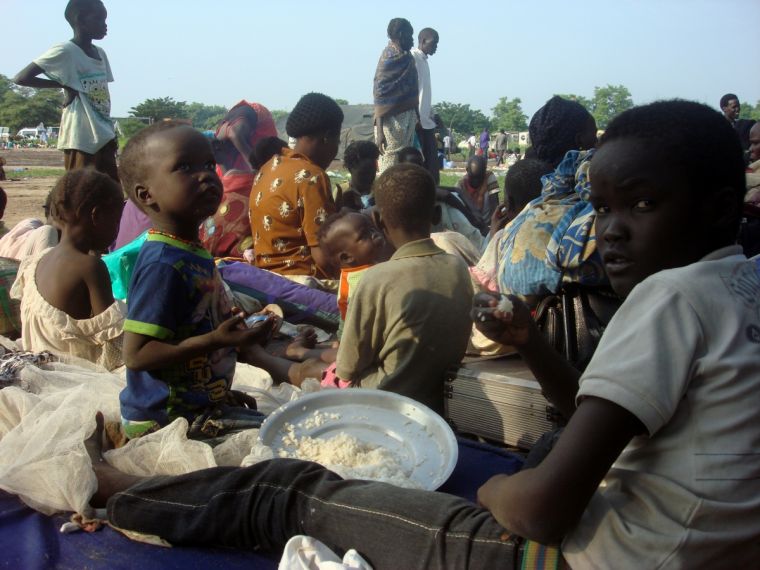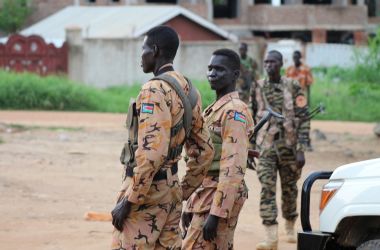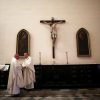
Reuters – An estimated 36,000 people have been displaced from Juba since violence erupted on July 7.
South Sudan is in turmoil. Last Thursday, fighting erupted in the capital city of Juba between troops loyal to rivals President Salva Kiir and vice-president Riek Machar. Since then, the violence escalated and hundreds have been killed, including dozens of civilians.
Fears are rising that the country could slide back into civil war. South Sudan has already barely survived one internal battle since its secession from the North in 2011 – the anniversary of which it celebrated on Saturday – and a second would be disastrous for the world’s youngest country.
Kiir and Machar’s rivalry stretches back years. Civil war broke out in December 2013 following an attempted coup by soldiers loyal to Machar. The fighting escalated, spreading throughout the country and fracturing it along ethnic lines – Kiir is a member of the Dinka community, while Machar is from the Nuer tribe. More than a million civilians were displaced, and thousands killed. The food crisis became the worst in the world by July 2014, and peace talks that began in August of that year dragged on for months as the fighting continued. A deal was finally signed the following August, and Machar returned to Juba in April 2016 to be sworn in as first vice-president in a new transitional government of national unity.
The political situation remained precarious, however, and on July 7 open battle resumed in the capital. Kiir and Machar denied having ordered their troops to fight, leading to concerns that neither had full control of their forces.
The US yesterday urged armed forces on both sides of the conflict to down their weapons and seek an immediate end to the fighting. “This senseless and inexcusable violence – undertaken by those who yet again are putting self-interest above the well-being of their country and people – puts at risk everything the South Sudanese people have aspired to over the past five years,” said White House national security advisor Susan Rice.
“Five years ago this week, the South Sudanese people joyously celebrated their independence. Instead of honoring this anniversary, the recent violence will instead inflict yet another wave of trauma on South Sudanese citizens, who have suffered far too much already. All those engaged in the fighting must stop immediately.”

Reuters – South Sudanese policemen and soldiers stand guard along a street following renewed fighting in Juba.
Other world and faith leaders joined the call for peace. Archbishop of Canterbury Justin Welby urged warring factions to accept mediation.
“Those who will suffer most are the poorest, especially women and children. Those who pursue violence will face the judgement of God in answer to the cries of the souls of those whose death they have caused,” a statement from his office said.
Welby added: “They can still turn back: with our voices and our prayers to Jesus the Prince of Peace, let us call on them to do so”.
Yesterday evening both Kiir and Machar ordered their loyalists to end hostilities and declared a ceasefire. A spokesperson for the President said he “is determined to carry on his partnership” with his rival.
According to people on the ground, troops have paid heed to their leaders and fighting has now stopped, though the atmosphere in Juba remains tense. Stefanie Glinksi, field content manager for World Vision UK, returned from a visit to the capital two weeks ago. She told Christian Today that the entire humanitarian community in Juba has been in “lock-down” since Thursday.
“That’s still the case even with the ceasefire being announced. It’s still very fluid and tense in Juba. Now is the time we really need peace to come through,” she said.
Colleagues in Juba told Glinksi that the streets have been empty for the past few days – civilians have been huddled in their homes, churches and schools or have fled the city entirely in fear of the constant gunfire. Now the ceasefire has come into effect, however, they hope for a peaceful future for South Sudan.
“People on the ground are very strong, super resilient, and they are happy to rebuild their country, they just need the means to do that,” she said. “They just need the right support. The people there haven’t given up on their country.”
Even if the violence remains subdued, South Sudan has a long and difficult path to peace. Around 4.8 million people are facing severe food shortages, and one in four children under the age of five are acutely malnourished. The UN’s appeal for South Sudan currently only has 39 per cent of the funding it needs – a shortfall of US $800million.
Speaking to Christian Today, Donald Mavundese, head of East and Southern Africa at Christian development charity Tearfund, said the future for South Sudan will be uncertain whether or not the ceasefire holds.
“The reality is that this fighting has made a desperate situation worse,” he said.
“We already have a situation where around 4.8 million people are severely food insecure, millions do not have simple access to food and water, and many of them have been displaced. The continuation of this violence would make things so much worse, and complicate our ability to help.”
Tearfund is working through local churches in South Sudan to meet the needs of the country’s most vulnerable people. While places of worship in Juba have responded to immediate needs over the past few days by providing shelter to the tens of thousands of displaced, many more are involved in longer-term development work.
Related
- South Sudan could be facing another bloody civil war as hundreds die in renewed clashes
- South Sudan’s fifth anniversary: commemorating a sombre birthday
- Nun dies after being shot in South Sudan
- Bishops broker South Sudan peace deal: ‘They have forgiven each other’
“Local churches have a community presence in remote and difficult places [across South Sudan],” Mavundese said. In many areas, they are working as a “surrogate state, providing services the government is not able to do,” he added.
The South Sudan Council of Churches released a statement on July 10 saying church leaders were “extremely disturbed” by the ongoing tensions in the country.
“We condemn all acts of violence without exception. The time for carrying and using weapons has ended; now is the time to build a peaceful nation,” the statement, which was read out on national radio, said.
“We pray for those who have been killed, and for their families, and we ask God’s forgiveness for those who have done the killing. However we also urge repentance and a firm commitment from all armed individuals, forces and communities, and from their leaders, to create an atmosphere where violence is not an option.
“We are encouraged by the statements from both President Salva Kiir and First Vice President Riek Machar calling for calm. We add our voices to theirs, and urge soldiers and civilians to refrain from provocative words and actions, and to do everything in their power to avoid escalating the situation.”
Mavundese said his colleagues were hopeful that the ceasefire would hold, though it’s impossible to say for certain.
“[It would not be] the first time that the President and vice-president have agreed a peace deal that was broken,” he said. “That the violence was around [the same time as] the independence celebrations, tells you how precarious this situation is.
“If the ceasefire holds, and the fighting stops for a long time or forever, we can do more to help those who are in desperate need. A more stable environment will help the road to recovery. When we’re helping people in the context of constant fighting, we are forced to provide basic services. But what we can do [if the violence ends] with and through churches is start providing longer-term work, helping communities to produce their own food rather than depend on our feeding centres.
“We just want to be able to help South Sudanese people stand on their own two feet.”


